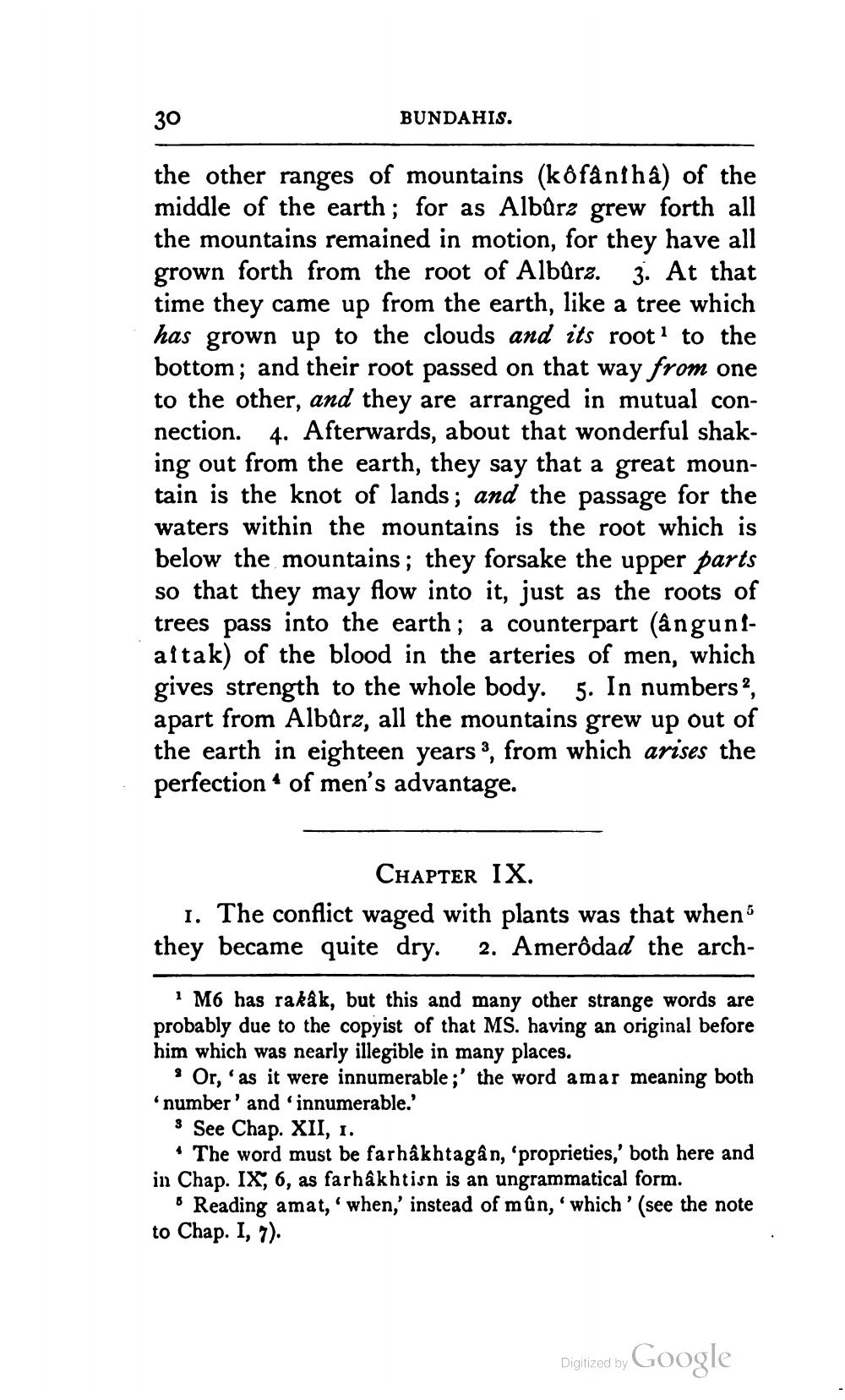________________
BUNDAHIS.
the other ranges of mountains (kôfântha) of the middle of the earth; for as Alborz grew forth all the mountains remained in motion, for they have all grown forth from the root of Albůrz. 3. At that time they came up from the earth, like a tree which has grown up to the clouds and its root to the bottom; and their root passed on that way from one to the other, and they are arranged in mutual connection. 4. Afterwards, about that wonderful shaking out from the earth, they say that a great mountain is the knot of lands; and the passage for the waters within the mountains is the root which is below the mountains; they forsake the upper parts so that they may flow into it, just as the roots of trees pass into the earth; a counterpart (ângunfaitak) of the blood in the arteries of men, which gives strength to the whole body. 5. In numbers?, apart from Albarz, all the mountains grew up out of the earth in eighteen years », from which arises the perfection of men's advantage.
CHAPTER IX. 1. The conflict waged with plants was that when they became quite dry. 2. Amerôdad the arch
* M6 has rakåk, but this and many other strange words are probably due to the copyist of that MS. having an original before him which was nearly illegible in many places.
Or, as it were innumerable;' the word amar meaning both number' and 'innumerable.' 3 See Chap. XII, 1.
• The word must be farhâkhtagân, 'proprieties,' both here and in Chap. IX, 6, as farhâkhtisn is an ungrammatical form.
Reading amat,' when,' instead of mûn,' which' (see the note to Chap. I, 7).
Digitized by
Digitized by Google




